 W
WNorbert Barlicki was a Polish publicist, lawyer and politician of the Polish Socialist Party (PPS).
 W
WCamille Blaisot was a French politician and lawyer.
 W
WRudolf Breitscheid was a German politician and leading member of the Social Democratic Party of Germany (SPD) during the Weimar Republic. Once leader of the liberal Democratic Union, he joined the SPD in 1912. He defected to the Independent Social Democratic Party of Germany (USPD) in 1917 due to his opposition to the First World War, and rejoined the SPD in 1922. He served as a senior member of and foreign policy spokesman for the SPD Reichstag group during the Weimar Republic, and was a member of the German delegation to the League of Nations. After the Nazi rise to power, he was among the members of the Reichstag who voted against the Enabling Act of 1933, and soon after fled to France to avoid persecution. He was arrested and handed to the Gestapo in 1941, and died in Buchenwald concentration camp in 1944.
 W
WLudvik Buland was a Norwegian trade unionist. He chaired the Norwegian Union of Railway Workers, but was imprisoned and died during the occupation of Norway by Nazi Germany.
 W
WDr. Jan Jerzy Buzek was a Polish physician, activist and politician from the region of Zaolzie, Czechoslovakia.
 W
WWłodzimierz Dąbrowski was a Polish lawyer and political activist in Silesia.
 W
WRobert Danneberg was an Austrian-Jewish politician, a member of the Social Democratic Workers Party of Austria (SDAPÖ) and a prominent Austro-Marxist theoretician. Danneberg was one of the architects of Red Vienna and he was killed in the Auschwitz concentration camp in 1942.
 W
WStanisław Józef Dubois was a Polish journalist and political activist in the Second Polish Republic, member of the left-wing Polish Socialist Party as well as the Youth Organisation of the Workers' University Society.
 W
WJakob Ehrlich was an early Zionist and leader of the Jewish Community in Vienna, Austria. Ehrlich represented the city's 180,000 Jewish citizens in the city government before World War II, and was among those deported in the "Prominententransport" to the Nazi concentration camp at Dachau, soon after the German army entered Vienna in March 1938. He died in Dachau a few weeks later, from beatings.
 W
WPiotr Feliks was a Polish political, social and education activist.
 W
WIlya Isidorovich Fondaminsky, was a Russian author and political activist, in 1910s one of the leaders of the Esers party, in 1917 a senior member of the Alexander Kerensky's Provisional government.
 W
WSiegfried Gumbel was an attorney, politician (DDP), and President of the Jewish Community of Württemberg, Stuttgart since 1933.
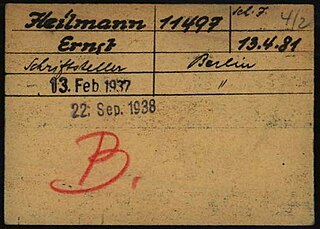 W
WErnst Heilmann was a German jurist and politician of the Social Democratic Party of Germany.
 W
WOle Hermansen (1893–1942) was a Norwegian trade unionist.
 W
WOtto Hirsch was a German and Jewish jurist and politician during the Weimar Republic. He was born in Stuttgart, Germany and died in Mauthausen concentration camp.
 W
WMartin Hoop was a district leader in the Communist Party of Germany in Saxony and a supporter of the Weimar Republic presidential candidate Ernst Thälmann.
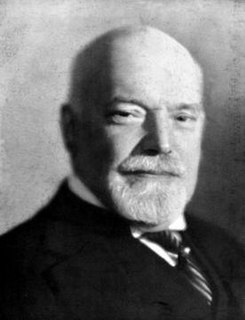 W
WPaul-Émile Janson was a francophone Belgian liberal politician and Prime Minister (1937–1938). During the German occupation, he was arrested as a political prisoner and died in a German concentration camp in 1944.
 W
WFranz Koritschoner was an Austrian communist politician. Born in Vienna, Koritschoner was a leading figure of the Communist Party of Austria (KPÖ), and a member of its Central Committee until 1928. He translated the works of Lenin and edited the central party organ Die Rote Fahne.
 W
WPati Kremer (1867–1943) was a Russian revolutionary socialist and pioneer of the General Jewish Workers' Union in Lithuania, Poland and Russia (Bund). She was the wife of Arkadi Kremer.
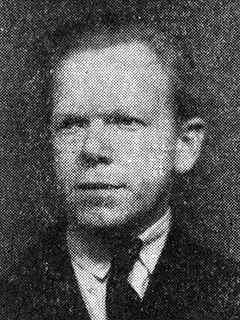 W
WHenry Wilhelm Kristiansen was a Norwegian newspaper editor and politician for the Communist Party. He served as party chairman from 1931 to 1934, and then as editor-in-chief of the party organ Arbeideren from 1934 until 1940. Due to the Nazi German occupation of Norway, the newspaper was closed in 1940, and Kristiansen was deported together with his wife in 1941, and died in Neuengamme concentration camp.
 W
WMarianne Katharina "Käthe" Leichter was an Austrian economist, women's rights activist, journalist and politician. She was a member of the Social Democratic Party of Austria and the Viennese Labour Chamber. She was detained in Ravensbrück concentration camp during the Nazi regime and killed by gas at the Bernburg Euthanasia Centre in 1942.
 W
WAugustyn Łukosz was a Polish national activist and socialist politician from the region of Zaolzie, Czechoslovakia. He was a member of the Polish Socialist Workers Party, the social democratic party active amongst the Polish minority in interbellum Czechoslovakia. In 1935 Łukosz founded the Polish Social Democratic Party (PPSD).
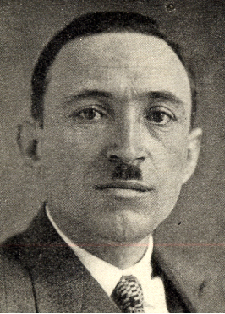 W
WAugustin Malroux was a French socialist politician and member of the French Resistance, a teacher by profession.
 W
WJosef Friedrich Matthes was head of the short lived Rhenish Republic.
 W
WJan Mosdorf, was a Polish right-wing politician, director of the nationalist organization All-Polish Youth and member of the far-right political party National Radical Camp (ONR). He also worked as a publicist, using the pseudonym Andrzej Witkowski. In 1943, Mosdorf was killed in the Auschwitz concentration camp.
 W
WKurt Nehrling was a German Social Democratic politician and member of the German resistance against Hitler. Nehrling was responsible for supplying information to the Soviet Union and hid banned books. He was later caught by the SS and killed at the Dachau concentration camp.
 W
WZofia Praussowa was a Polish politician, activist of the Polish Socialist Party, member of Polish Sejm (1922–1930), labor inspector and feminist.
 W
WBrigadier General Bolesław Jerzy Roja was an officer of the Polish Legions in World War I, a general, and a politician in the Second Polish Republic, recipient of some of the highest Polish military awards including Virtuti Militari. He opposed Józef Piłsudski and his Sanacja regime in the 1920s. After the German invasion of Poland in 1939 he was arrested and murdered by the Nazis in Sachsenhausen concentration camp.
 W
WRoman Franciszek Rybarski was a Polish economist and politician. He was the foremost economist of the right-wing National Democracy political camp and creator of its economic program.
 W
WWerner Scholem was a member of the German Reichstag in 1924–1928 and a leading member of the Communist Party of Germany. Werner Scholem and his wife Emmy were portrayed in the 2014 documentary "Between Utopia and Counter Revolution".
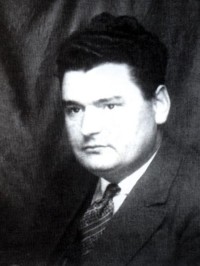 W
WHenryk Sławik was a Polish politician in the interwar period, social worker, activist, and diplomat, who during World War II helped save over 30,000 Polish refugees, including 5,000 Polish Jews in Budapest, Hungary by giving them false Polish passports with Catholic designation. He was executed with some of his fellow Polish activists on order of Reichsführer SS in concentration camp Gusen on 23 August 1944.
 W
WKarol Śliwka was a Polish communist politician from Zaolzie region in the First Czechoslovak Republic. Śliwka was one of the most prominent political leaders of the Polish minority in Zaolzie and a member of National Assembly of the Czechoslovak Republic from 1925 to 1938.
 W
WŠime Spitzer was a Croatian Zionist, notable member of the Jewish community Zagreb and general secretary of the "Federation of Jewish confessional communities of Yugoslavia".
 W
WRobert Stricker was a Jewish Austrian politician.
 W
WRudolf Tayerlé (1877–1942) was a Czechoslovak Social Democratic politician and trade union leader. In 1922 he was instrumental in expelling the communists from the Odborové sdružení českoslovanské. In 1942 he was elected vice-president of the International Federation of Trade Unions. Tayerlé was arrested shortly after the German invasion of Czechoslovakia. He died in the Mauthausen-Gusen concentration camp.
 W
WWładysław Tempka was a Polish politician and lawyer.
 W
WErnst Johannes Fritz Thälmann was a German communist politician, and leader of the Communist Party of Germany (KPD) from 1925 to 1933.
 W
WGeorges Valois was a French journalist and politician, born in Paris. He was a member of the French resistance and died in the Bergen-Belsen concentration camp.
 W
WTimotheus Josephus Verschuur was a Dutch politician.
 W
WHarry August Westli was a Norwegian trade unionist who was imprisoned and died during the occupation of Norway by Nazi Germany.
 W
WFritz Wolffheim was a German communist politician and writer. He was a leading figure in the National Bolshevism tendency that was briefly influential in Germany after World War I.